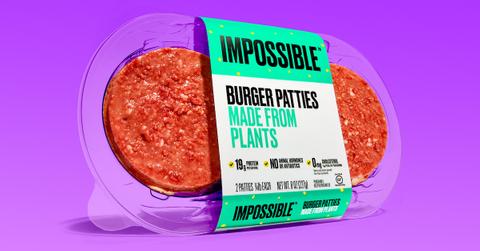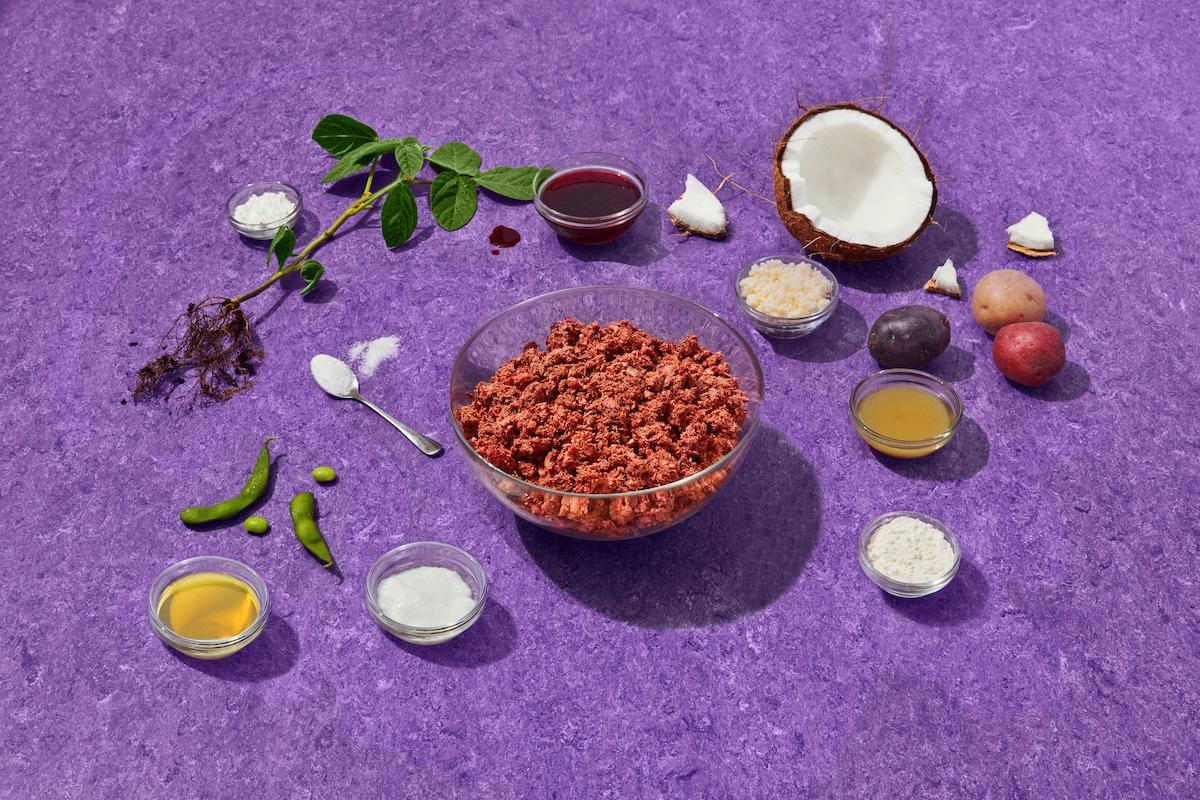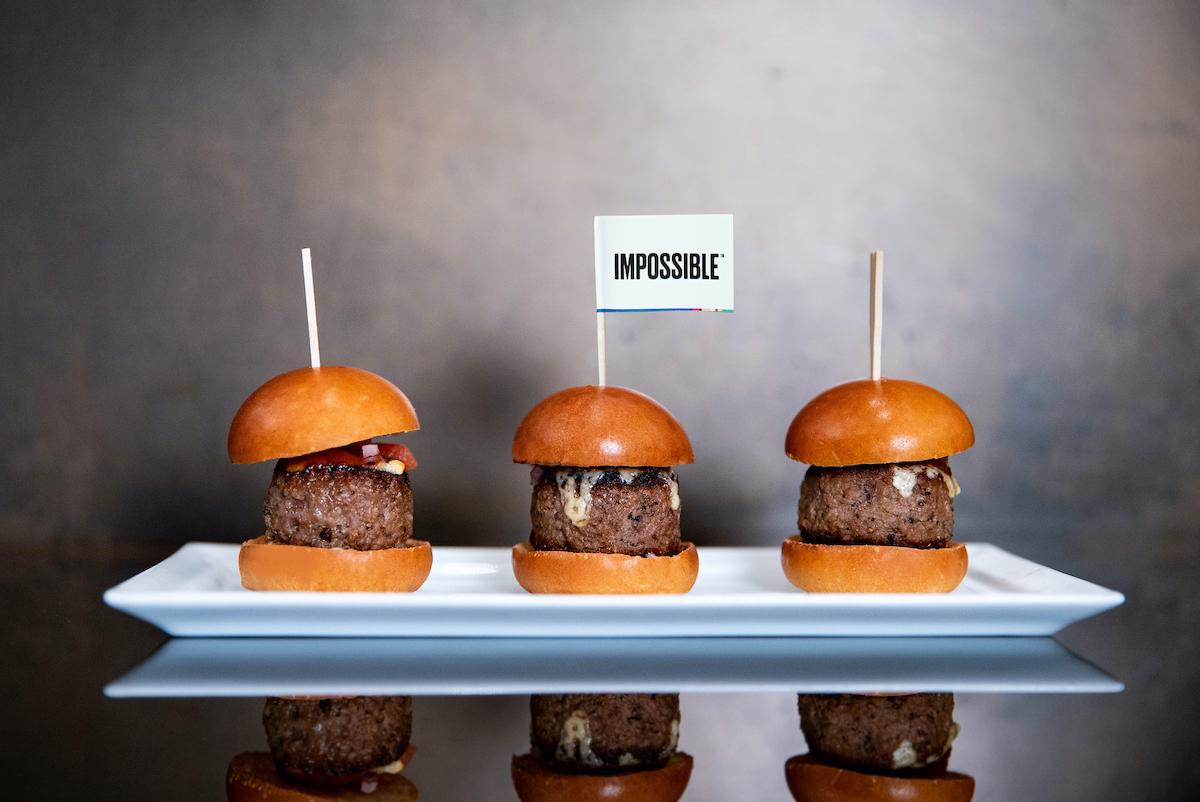Is the Impossible Burger Healthy? Here's How It Compares to Beef
Updated Aug. 3 2023, 4:50 p.m. ET

Since its mainstream introduction, the Impossible Burger by Impossible Foods has been heralded as one of first plant-based burgers that actually tastes like meat, tricking (and even satisfying) some of the staunchest of meat-eaters. After all, this veggie burger “bleeds!”
Following its initial introduction, Impossible Foods has also created several varieties of burgers, including the "Impossible™ Indulgent Burger Patties Made From Plants" and "Impossible™ Beef Lite Made From Plants."
But the Impossible Burger hasn't been without its criticisms, either. Some have criticized the burger for its star ingredient, heme. Is the Impossible Burger a healthy alternative to beef? Let's find out.
What’s the nutritional value of an Impossible Burger?

What are you really getting when you bite into an Impossible Burger? According to the nutritional facts on the Impossible Burger patty, here’s the breakdown:
A 113-gram serving of the Impossible Burger contains:
- 230 calories
- 13 grams of total fat
- 9 grams of carbohydrates
- 19 grams of protein
- 5 grams of fiber
- Less than 1 gram of added sugar
- 16 percent of the daily value of sodium
- 130 percent of the daily value of vitamin B12
- 20 percent of the daily value of folate
- 30 percent of the daily value of thiamin
- 15 percent of the daily value of riboflavin
- 50 percent of the daily value of niacin
- 50 percent of the daily value of zinc
- 25 percent of the daily value of iron
- 15 percent of the daily value of phosphorus
- 20 percent of the daily value of vitamin B6
What are the calories in an Impossible Burger?
In a 113-gram serving of the Impossible Burger, there are approximately 230 calories. This is about the same compared to the number of calories in a traditional beef patty. However, this only refers to the patties — if the beef hamburger is dressed with additional meat and toppings (like bacon), that calorie count could spike up pretty quickly.
What are the ingredients in an Impossible Burger?

We already know that the Impossible Burger relies on heme – also known as leghemoglobin – to give it its seemingly authentic meaty flavor. But what else is in an Impossible Burger? After all, most veggie burgers have vegetables like corn, carrots, and spinach sticking out of the patty, getting loosened with every bite.
According to the Impossible Burger website, an Impossible patty contains water, sunflower oil, coconut oil, soy protein concentrate, and natural flavors. The burger also contains 2 percent or less of salt, soy leghemoglobin, mixed tocopherols, soy protein isolate, food starch modified, L-tryptophan, cultured dextrose, yeast extract, and methylcellulose.
Impossible Burger's patties also include vitamins and minerals such as niacin, vitamin B6, vitamin B12, vitamin B2, and zinc gluconate.
In 2019, the Impossible patty started using soy protein instead of wheat, making it gluten-free, as well as adding methylcellulose. This plant-based culinary binder improved the patty’s texture and switched to sunflower oil to reduce its saturated fat content.
But the question remains: Is it truly healthier?
So, is the Impossible Burger healthy?

The nutritional value of the Impossible Burger demonstrates that this particular plant-based patty is high in vitamins and minerals. The Impossible Burger contains higher levels of B12, folate, iron, and thiamine than a traditional beef patty, according to nutritional facts from the University of Rochester.
While the beef patty and Impossible Burgers contain heme, the source of these different kinds is very different. The heme in beef patties is technically natural, whereas the heme added to the Impossible Burger is genetically engineered, technically making the Impossible Burger a genetically modified organism (GMO).
Impossible Burgers have many beneficial nutritional values over traditional beef patties.
The iron in the Impossible Burger is also worth mentioning. While beef patties may have a somewhat comparable amount of iron – the Impossible Burger has 25 percent of the daily value, whereas a beef patty has 16 percent – the iron in an Impossible patty comes from heme.
One study found that the bioavailability of heme is equivalent to the iron in meat, making it a crucial source of highly absorbable iron.
Impossible Burgers also contain a decent amount of protein. With 19 grams of protein, the Impossible Burger contains about as much protein as nearly three tablespoons of peanut butter. While that may be good by the standards of vegetarians and vegans, a traditional beef patty has significantly more protein – about 29 grams.
Impossible Burgers contain more fiber than beef patties, while beef burgers contain zero fiber.
There are a few downsides to Impossible burgers as well.
Beef patties contain vitamin K2, which you won’t find in the Impossible Burger. Vitamin K2 regulates calcium deposition, promoting bone calcification but preventing it in areas where it shouldn’t be. It’s also responsible for regulating blood clotting, the heart, and bones, so vitamin K2 is important.
Most sources of vitamin K2 are animal products and fermented foods. If you are a vegan or vegetarian, sauerkraut, natto, tempeh, and kombucha are high, plant-based sources of vitamin K2.
Beef burgers do not have any carbs, while the Impossible Burger has nine grams of carbohydrates. Also, Impossible Burgers are significantly high in salt, a general problem in frozen foods. While the Impossible Burger packs a punch of 16 percent of the daily value of sodium, traditional beef patties only have one percent.
There are a few other ingredients beef has that Impossible Burgers do not — for instance, cholesterol, animal hormones, traces of fecal matter (seriously), and if the meat is not organic, antibiotics. The sad truth is that raising and killing animals for meat hurts both animals and the environment.
So, is the Impossible Burger healthy? While it's not a nutritionally perfect food (it wasn't designed to be one, after all), and a homemade veggie burger might be a healthier option, the Impossible Burger is still so much better for our bodies, animals and the planet than continuing to raise cows for beef.
This article, originally published on Nov. 18, 2020, has been updated.